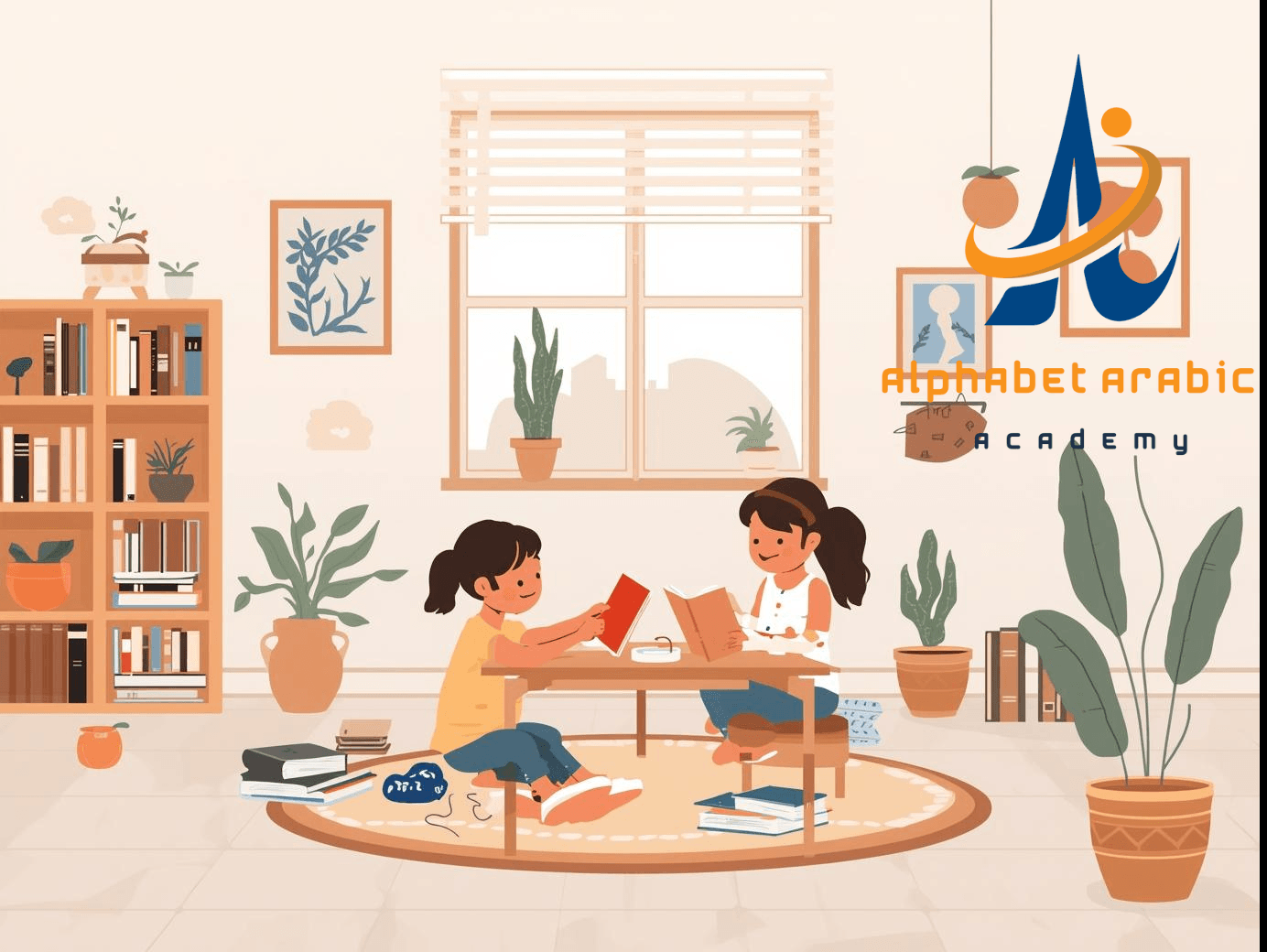
Which Arabic dialect to learn? This is the first question for anyone who wants to start learning the Arabic language. It is a valid question, but the answer is up to you. In other words, in relation to your goals, learn Arabic dialect is the first step to put your foot on the first step of the learning ladder.
Are you dreaming of being able to speak Arabic like a native without stepping foot outside your home? Want to dive into the rich world of Arabic dialects and explore their daily use, culture, and flair? Welcome to your guide on how to learn Arabic dialect at home the smart, fun, and affordable way — no passport required.
If you want to master the ‘Ammiya’ of Cairo, we have curated the ultimate Egyptian Arabic resource to help you speak confidently in no time.
1. Understand the Difference Between Dialects and Standard Arabic First
Arabic comprises a multitude of dialects, not just one language!
- Modern Standard Arabic (MSA): Used in media, books, and formal speech.
- Classical Arabic: The language of the Qur’an and religious texts.
- Colloquial Dialects: Everyday spoken Arabic, like Egyptian, Levantine, Gulf, Moroccan, and Maghrebi.
💡 Most learners want to speak the dialect used in daily life — that’s what this guide is all about.
2. Choose Your Arabic Dialect Strategically Based on Real-Life Needs
Don’t guess — choose your dialect based on:
- Your target country: Egypt, Saudi Arabia, Lebanon?
- Media interests: Egyptian movies? Lebanese music? Syrian podcasts?
- Where Arabic speakers are most accessible to you.
🎯 Popular Choices:
- Egyptian Arabic – widely understood across Arab countries.
- Levantine Arabic – spoken in Lebanon, Syria, Palestine, and Jordan.
- Gulf or Saudi Dialects – for business and religious contexts.
- Moroccan Arabic (Darija) – challenging but beautiful.
3. Use Proven, Fun, and Effective Apps to Learn Daily Vocabulary
Let’s face it — mobile learning is life.
🚀 Top apps that help you learn Arabic dialects:
- Memrise – great for spoken phrases.
- Duolingo – ideal for beginners.
- Mondly – bite-sized, daily lessons.
- Ling – conversational focus.
- Pimsleur – audio-based listening fluency.
- Rosetta Stone – structured learning.
- Italki – real tutors, real dialects.
- YouTube – endless dialect videos.
- Reddit & Podcasts – get deep into culture.
🔁 Mix 2–3 apps for better results. Start your daily Arabic learning habit today!
4. Watch Arabic Movies, Series, and Music Videos for Fun Immersion
Language learning doesn’t have to be boring textbooks.
🎬 Try these to immerse in spoken Arabic:
- Egyptian comedy shows (super popular).
- Lebanese dramas on YouTube.
- Gulf TikTok or Instagram reels.
- Music in Moroccan or Tunisian dialects.
- Movie nights with Arabic subtitles.
👂Why? You’ll train your ears and pronunciation like a native speaker.
5. Take Interactive Online Courses from Real Native Speakers
Textbooks? Useful. But real conversation? That’s where the magic happens.
✅ At Start your Arabic learning journey, we offer:
- Live classes with native dialect-speaking tutors.
- Customizable timetables to accommodate your speed.
- Affordable pricing starting at $40/month.
- Lessons tailored to Egyptian, Levantine, and Gulf dialects.
- Classes cater to novices, those with some experience, and seasoned students.
💬 Whether you’re a complete beginner or want to refine your accent — we’ve got your back.
📌 Contact us today and book your free assessment!
6. Use Arabic Dialect Phrasebooks and Flashcards Daily
Build practical vocabulary and essential phrases you’ll actually use.
📝 Pro Tip: Use dialect-specific dictionaries and flashcards to memorize:
- Greetings and daily expressions.
- Food and shopping phrases.
- Grammar terms and verb patterns.
- Pronunciation and slang.
🔥 Resources like “Durus al-Lughat al-Arabiyyah” (especially Dr. Abdur Rahim’s series), ArabicPod, or physical paperback phrasebooks help solidify your progress.
7. Practice Speaking with Tutors or Language Exchange Partners
The best way to speak like an Arab is… to actually speak!
🎧 Online Platforms:
- Preply – book dialect-specific lessons.
- Italki – speak with native tutors.
- Tandem – connect with native speakers.
- Zoom/Skype classes – all available with us at Start your Arabic learning journey.
🤝 Don’t be shy — it’s okay to make mistakes. That’s how you grow!
8. Create a Structured Learning Schedule That Actually Works
Consistency beats cramming. Build a daily Arabic dialect routine like this:
📅 Sample Weekly Plan:
- Mon-Wed: Vocabulary + Flashcards.
- Thu: Watch an Egyptian series episode.
- Fri: Live conversation class.
- Sat: Review phrases on Memrise.
- Sun: Chill podcast or Arabic music session.
⏳ Commit to just 20–30 minutes a day and you’ll see massive progress.
9. Monitor your advancements and revise your approach on a monthly basis.
📈 Keep a journal, log new words, write down dialect differences.
Use a checklist like:
- I can introduce myself in Levantine.
- I know 10 food words in Egyptian.
- I understand Moroccan greetings.
✏️ Make changes when you’re stuck — don’t be afraid to switch apps, tutors, or dialects.
10. Join a Supportive Arabic Learning Community Online
Community support = long-term success.
📱 Recommended Platforms:
- Facebook groups (like “Learn Arabic Dialects”).
- Reddit threads for regional learners.
- YouTube comments and Telegram study groups.
🎉 You’ll find people from all over the world sharing tips, real-life dialect challenges, and success stories!
Bonus Tip: Use Our Powerful, Affordable Program to Accelerate Your Arabic Learning Journey
💚 Why choose us at Start your Arabic learning journey?
- Native Arabic speakers teaching real dialects.
- Prices starting from just $40/month — no hidden fees.
- Multiple levels and age groups (kids, teens, adults).
- Flexible timings for busy learners.
- Structured learning path and proven results.
FAQs (Answering Your Top Questions)
1. What is the easiest Arabic dialect to learn at home?
Most learners find Egyptian Arabic easiest due to its popularity in media and simple grammar.
2. Can I learn Arabic dialects without learning MSA first?
Yes! If your goal is conversation, start directly with the dialect.
3. How long does it take to learn an Arabic dialect at home?
With 30 minutes daily, you can reach conversational fluency in 3–6 months.
4. Is it better to learn Arabic online or in person?
Online learning is more flexible, accessible, and affordable — especially through our academy.
5. Are there Arabic dialect courses for beginners?
Absolutely! We offer beginner-level classes designed for English speakers and step-by-step guidance.
Final Thoughts: Take the First Step in Your Arabic Dialect Journey Today
Reaching this point shows your dedication to learning Arabic, and we’re here to assist you throughout the journey. Whether you’re a total beginner or ready for advanced conversation, our dialect program is built to suit your pace, interests, and life.
🎓 Don’t wait — join the rising wave of global learners making Arabic a part of their life from the comfort of home.
✅ Follow us on social media for daily motivation and tips!

